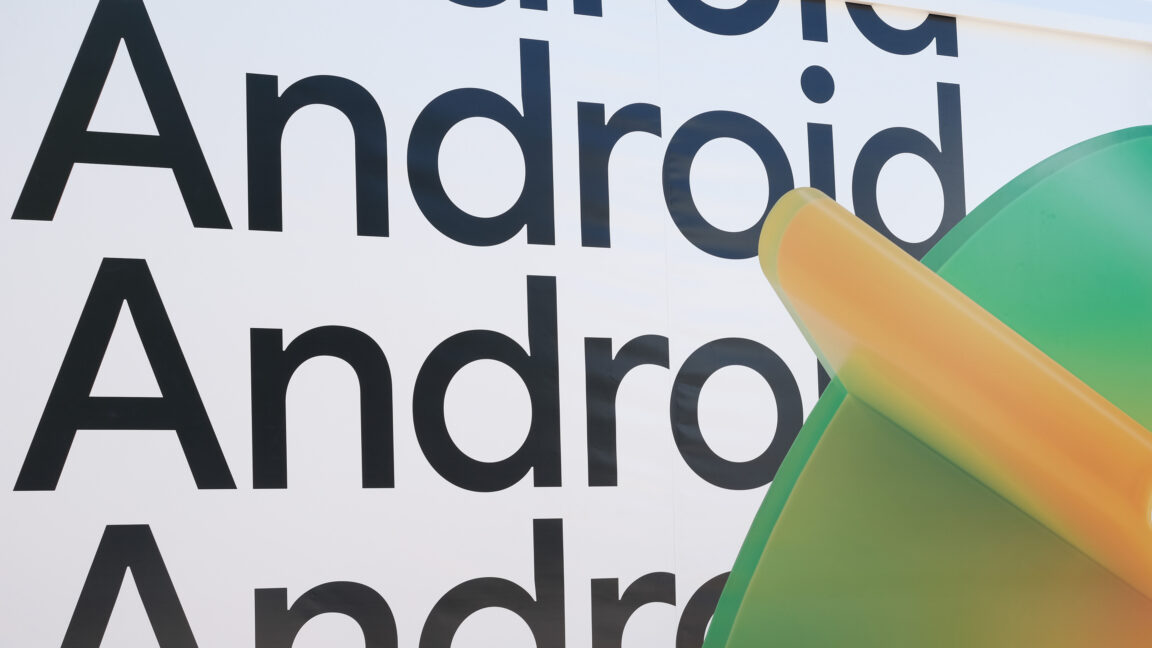
Credit: Ryan Whitwam
Google plans to begin testing its recently announced verification scheme for Android developers in the coming weeks, but there's still precious little information on how the process will work. F-Droid, the free and open source app repository, isn't waiting for the full rollout to take a position. In a blog post, F-Droid staff say that Google's plan to force devs outside Google Play to register with the company threatens to kill alternative app stores like F-Droid.
F-Droid has been around for about 15 years and is the largest source of free and open source software (FOSS) for Android. Because the apps in F-Droid are not installed via the Play Store, you have to sideload each APK manually, and Google is targeting that process in the name of security.
Several weeks ago, Google announced plans to force all Android app developers to register their apps and identity with Google. Apps that have not been validated by the Big G will not be installable on any certified Android devices in the future. Since virtually every Android device outside of China runs Google services, that means Google is in control of the software we get to install on Android.
According to F-Droid, Google's verification program threatens to break free app distribution. Google claims that attaching real identities to apps reduces the incidence of malware, which it has seen in action in Google Play. Still, the Play Store is not free of bad apps, which F-Droid points to as evidence that Google's moves won't actually eliminate the risks of sideloading.
Google's approach to verification would be a real problem for F-Droid's operation. F-Droid doesn't allow tracking or invasive advertising in the apps it distributes. Each app is provided to the platform in the form of source code, which is verified and then compiled by F-Droid. The site operators say they cannot require devs to register with Google, nor can they "take over" the app identifiers to register for them. Doing so would effectively take over distribution rights from the authors.
F-Droid warns that the project will end if Google is allowed to seize control of the entire Android software ecosystem by way of its developer verification program. In addition to gathering personal information from devs, F-Droid says Google will be demanding registration fees from independent developers, many of whom give their apps away for free and would be uninterested in paying Google for the privilege.
Google's application to test verification does ask if you can pay in USD, suggesting it will charge devs for the privilege of creating Android apps.
Credit: Ryan Whitwam
Google has been slow to provide details of the verification system. However, you can sign up for the early access program. During that process, Google does ask if you are able to pay registration fees in US dollars, which suggests there will be a cost for developers in the program. We've reached out to Google for more information.
A plea for regulation
F-Droid's position is clear: if you own a device, you should be allowed to decide what software to run on it. To force everyone to register with a central authority is an affront to the ideas of free speech and thought, says F-Droid.
So what's the solution? In the blog post, Google is accused of using security as a mask for what is really an attempt to consolidate monopoly power over app distribution at a time when its power is being suppressed by antitrust actions. F-Droid is calling on regulators from the US and EU to take a close look at Google's plans before it's too late.
Google is currently on the verge of massive court-mandated changes to the Play Store. After losing the antitrust case brought by Epic Games, Google went on to lose the appeal. As it explores further legal maneuvering, the firm may have to begin opening up its app distribution system by promoting third-party stores in Google Play and mirroring Google Play content in other storefronts. This will reduce Google's monopoly power in Android apps, which is the court's intention. However, the company's new goal of locking down sideloading could maintain its central role in Android software.
F-Droid calls on concerned developers and users to contact their government representatives to demand action. Specifically, the site suggests invoking the European Commission’s Digital Markets Act (DMA) to keep FOSS apps free from Google's gatekeeping.
While the pilot verification program is set to launch next month, it will be almost a year before unverified apps will be blocked. That will start with a handful of markets, including Brazil, Indonesia, Singapore, and Thailand. The restrictions are expected to expand globally in 2027.

-
 C114 Communication Network
C114 Communication Network -
 Communication Home
Communication Home


